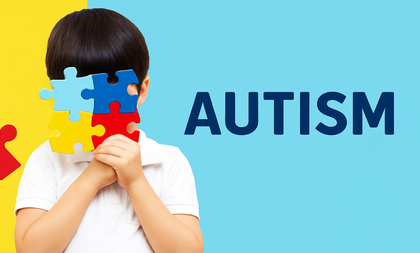No strong evidence to show acupuncture, music therapy work for autism: Study
By IANS | Updated: August 28, 2025 17:55 IST2025-08-28T17:53:51+5:302025-08-28T17:55:18+5:30
New Delhi, Aug 28 There is no strong evidence to support the use of complementary and alternative treatments ...

No strong evidence to show acupuncture, music therapy work for autism: Study
New Delhi, Aug 28 There is no strong evidence to support the use of complementary and alternative treatments such as acupuncture and music therapy for autism, finds a study on Thursday.
Researchers from the Paris Nanterre University, Paris Cité University in France and the University of Southampton in the UK showed that the safety of these treatments was rarely assessed.
"Many parents of autistic children, as well as autistic adults, turn to complementary and alternative medicines hoping they may help without unwanted side effects," said Professor Richard Delorme, Head of the Child and Adolescent Psychiatry Unit at Robert Debré Hospital in Paris.
"However, it is necessary to carefully consider evidence from rigorous randomised trials before concluding that these treatments should be tried," Delorme added.
For the study, published in the journal Nature Human Behaviour, the team assessed 248 meta-analyses, including 200 clinical trials involving over 10,000 participants.
Researchers investigated the efficacy and safety of complementary, alternative, and integrative medicines (CAIMs) to treat autism.
They looked at 19 types of treatment, including animal-assisted interventions, acupuncture, herbal medicine, music therapy, probiotics, and Vitamin D.
The team also created an online platform to make it easier for people to see the evidence they generated on different CAIMS.
Autistic people can find it hard to communicate, understand how people think or feel, be overwhelmed by sensory information, become anxious in unfamiliar surroundings, and carry out repetitive behaviours.
All of this can interfere with their quality of life, and up to 90 per cent report having used CAIMs at least once in their lifetime.
While some treatments showed potential, most studies were supported by weak or poor-quality evidence, so the effects are not reliable. Concerningly, safety assessments were missing for most treatments, with less than half of CAIMs having had any evaluation of the acceptability, tolerability, or adverse events, the team said.
Disclaimer: This post has been auto-published from an agency feed without any modifications to the text and has not been reviewed by an editor
Open in app